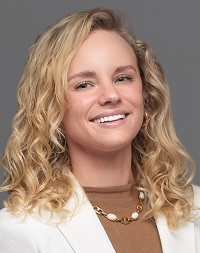
As dental attorneys, we continue to monitor legislative changes impacting our dental clients, including our dental support organizations (DSOs). An amendment to the New York Public Health Law Chapter 45-A took effect on August 1, 2023 that requires certain healthcare-related entities to disclose proposed material transactions to the New York State Department of Health (NY DOH) at least 30 days prior to the closing of such transactions. The requirements include specific timing, documentation, and filings to the NY DOH when engaging in mergers, acquisitions, and other change-of-control transactions in New York.
What Types of Transactions Must be Disclosed Under This Law?
In New York, the definition of healthcare entities includes physician practices, groups, or management services organizations (MSOs). The MSO category of healthcare entities includes MSOs that provide administrative or management services to one or more physician practices, provider-sponsored organizations, health insurance plans, or other entities providing healthcare services. This last category would include DSOs, since DSOs provide administrative and management services to dental offices, which are healthcare entities.
A material transaction covers any “affiliation or contract formed between a healthcare entity and another person.” A material transaction could also be a merger with a healthcare entity, and acquisition of a healthcare entity (including asset sales, securities sales, or a transfer of control), and the formation of a partnership, joint venture, or MSO.
To be considered a material transaction, the transaction, or a series of related transactions, must result in an increase of at least $25 million in the entity’s total gross in-state revenues. Material transactions do not include situations such as clinical trials or graduate medical education programs, since those are already subject to review under New York’s Public Health Law.
What Must the Disclosures Include?
The current requirements under the amendment in New York are a notice that includes:
- The names and current addresses of the parties to the material transaction.
- Copies of any definitive agreements, including pre- and post-closing conditions.
- Identification of all locations in New York where healthcare services are currently provided by each party and the amount of associated revenues.
- Any plans to reduce or eliminate services and/or participation in specific plan networks.
- The closing date.
- A brief description of the nature and purpose of the proposed material transaction.
The brief description should include the anticipated impact of the transaction on cost, quality, access, health equity, and competition in the impacted markets. This can be supported by data and a formal market impact analysis. The brief description should also include any commitments by the healthcare entity to address anticipated impacts. The penalty for not providing the required disclosures 30 days prior to the closing of the material transaction could be a fine of up to $2,000 per day.
Review of Disclosed Information
In New York, after receiving the required disclosures, the NY DOH submits the notice and all supporting documents to the New York Attorney General.
In the 30-day time period after the disclosures and before the closing, the NY DOH is supposed to post:
- A summary of the material transaction.
- An indication of the groups likely to be affected by the material transaction.
- A description of services currently provided by the healthcare entity, what commitments have been made by the healthcare entity to continue its services, and a list of any services that will be reduced or eliminated by the transaction.
- Details about how people can submit comments in a format that is easy to find and easy to read.
Beyond this posted information, the disclosures will not be subject to the New York Freedom of Information Law.
Why Does This Matter to Me?
As stated earlier, the New York disclosure requirement could apply to transactions involving DSOs. While most dental practice sales would not meet the $25 million dollar threshold required for the disclosures, the NY DOH has not issued regulations that clarify whether the $25 million threshold for the exception to the disclosure requirement applies to an annual gross amount or if it is considered in the aggregate over time. If a sale to a DSO does meet the threshold, transaction documents and information related to your dental practice sale could be under review by the NY DOH.
What Next?
In conversations with the NY DOH, they have indicated that the NY DOH is currently working to finalize the disclosure form. The NY DOH has a website for the material transaction disclosures where the form will be posted once it is ready. To the extent any individual dentist, dental practice, or DSO has a question related to this, or if we can assist in anyway, please give us a call.
 Vince Nardone is a partner with Benesch, with a focus in Benesch’s healthcare practice, and specifically a leader in the dental industry. He is a thought leader and regular speaker in the dental industry. He may be reached at (614) 223-9326 or vnardone@beneschlaw.com.
Vince Nardone is a partner with Benesch, with a focus in Benesch’s healthcare practice, and specifically a leader in the dental industry. He is a thought leader and regular speaker in the dental industry. He may be reached at (614) 223-9326 or vnardone@beneschlaw.com.
 Angelina Campin is an associate with Benesch, and focuses her practice on healthcare matters in both transactional and regulatory areas. She may be reached at (312) 506-3424 or acampin@beneschlaw.com.
Angelina Campin is an associate with Benesch, and focuses her practice on healthcare matters in both transactional and regulatory areas. She may be reached at (312) 506-3424 or acampin@beneschlaw.com. Vince Nardone Discusses Employment Contracts with Ohio State Dental Students
Vince Nardone Discusses Employment Contracts with Ohio State Dental Students  Navigating the 2024 Landscape: Strategies and Considerations for Dental Support Organizations (DSOs)
Navigating the 2024 Landscape: Strategies and Considerations for Dental Support Organizations (DSOs)  Sellers of Dental Practices to DSOs need to have a Buyer’s Mentality Requiring Selectivity and a Well-Thought-Out, Decision-Making Process
Sellers of Dental Practices to DSOs need to have a Buyer’s Mentality Requiring Selectivity and a Well-Thought-Out, Decision-Making Process  Increasing Profitability by Minimizing Disruptions within Your Dental Practice
Increasing Profitability by Minimizing Disruptions within Your Dental Practice  As a Dentist, What Are My Obligations Related to Out-of-State Patients and Potential Prescription Drug Abuse?
As a Dentist, What Are My Obligations Related to Out-of-State Patients and Potential Prescription Drug Abuse?